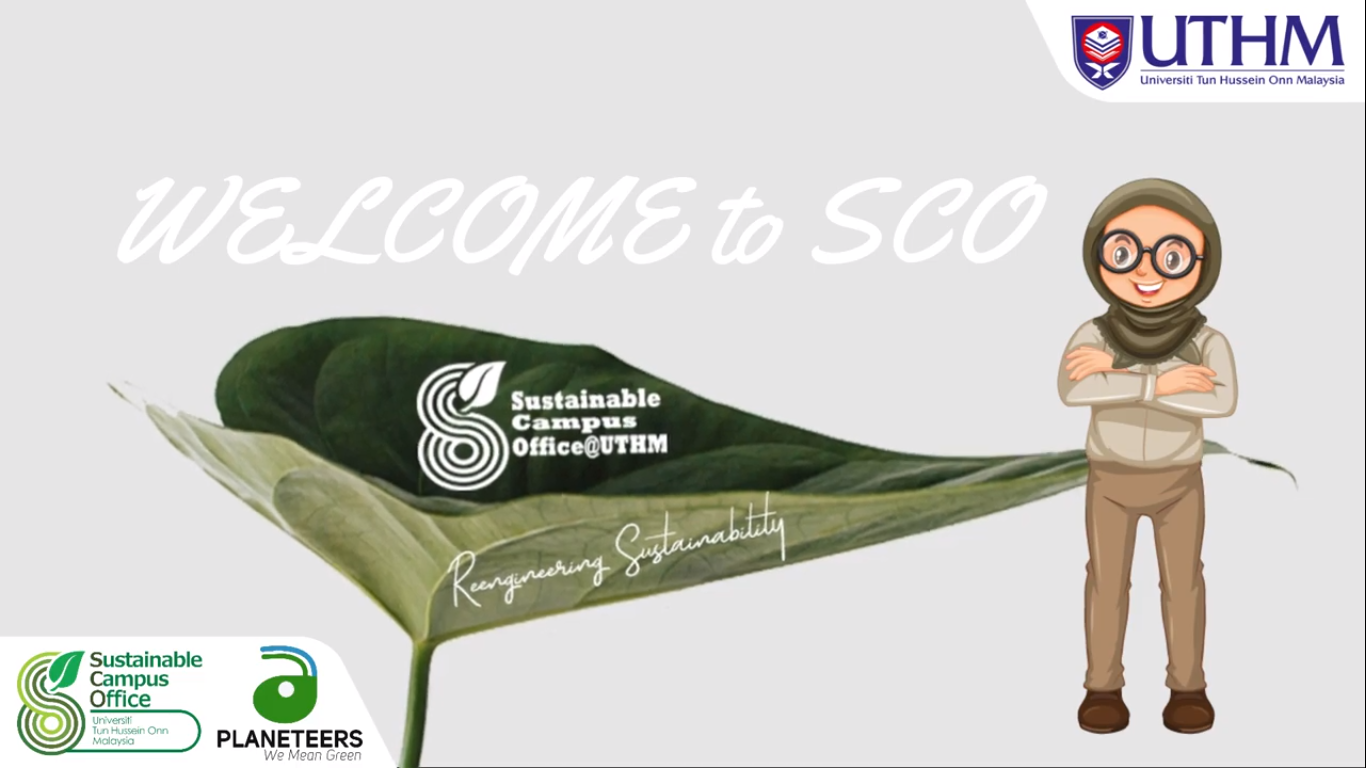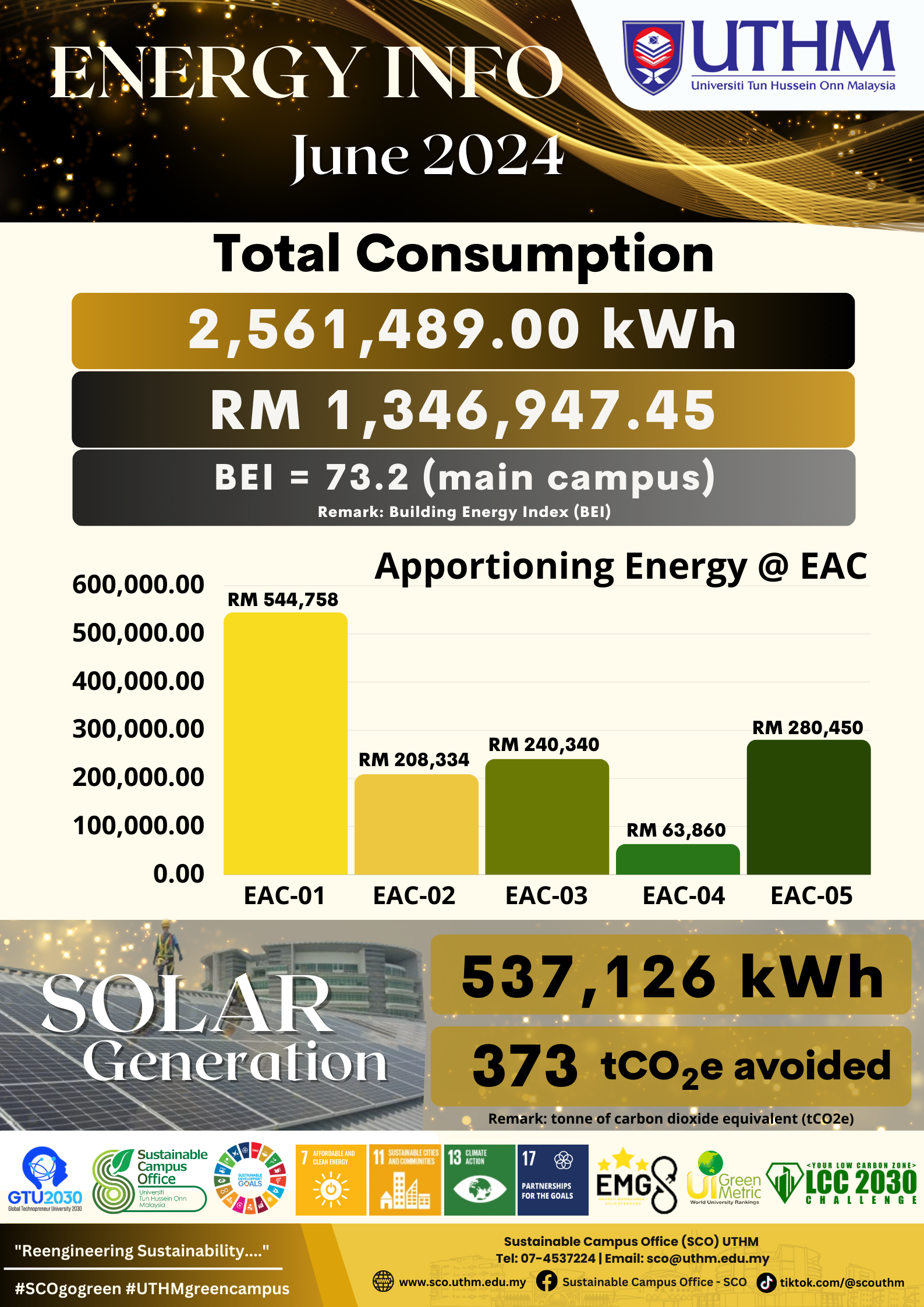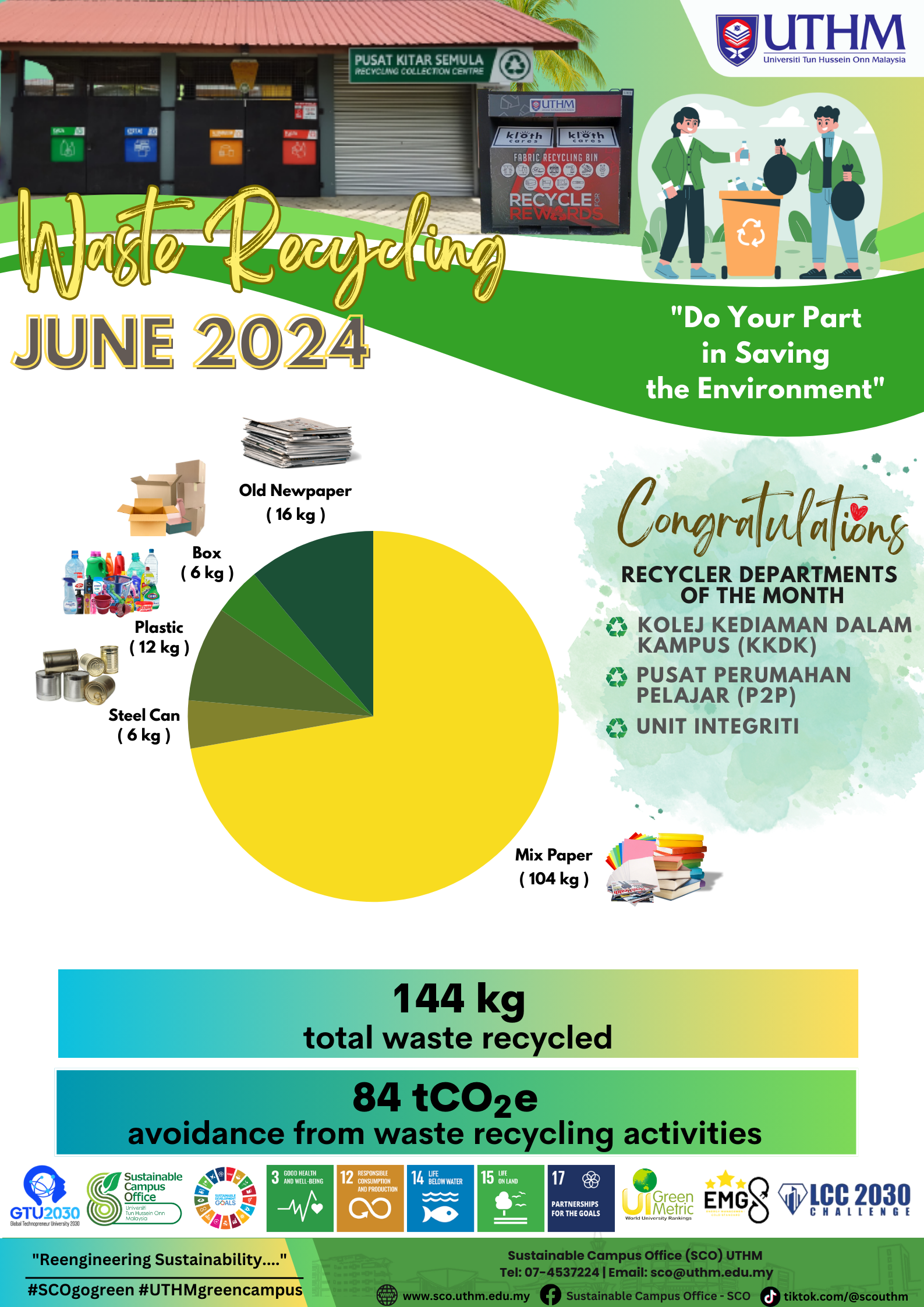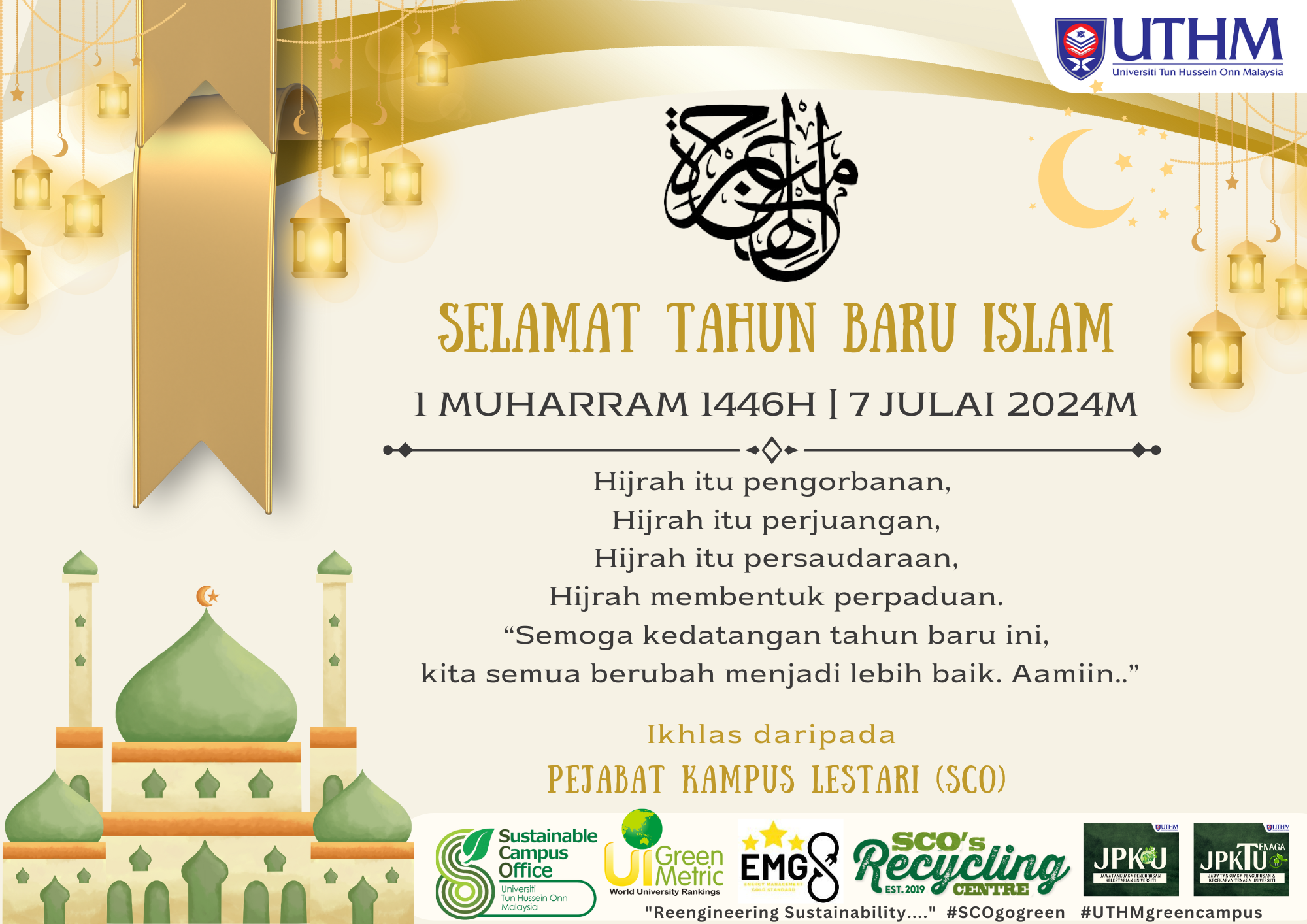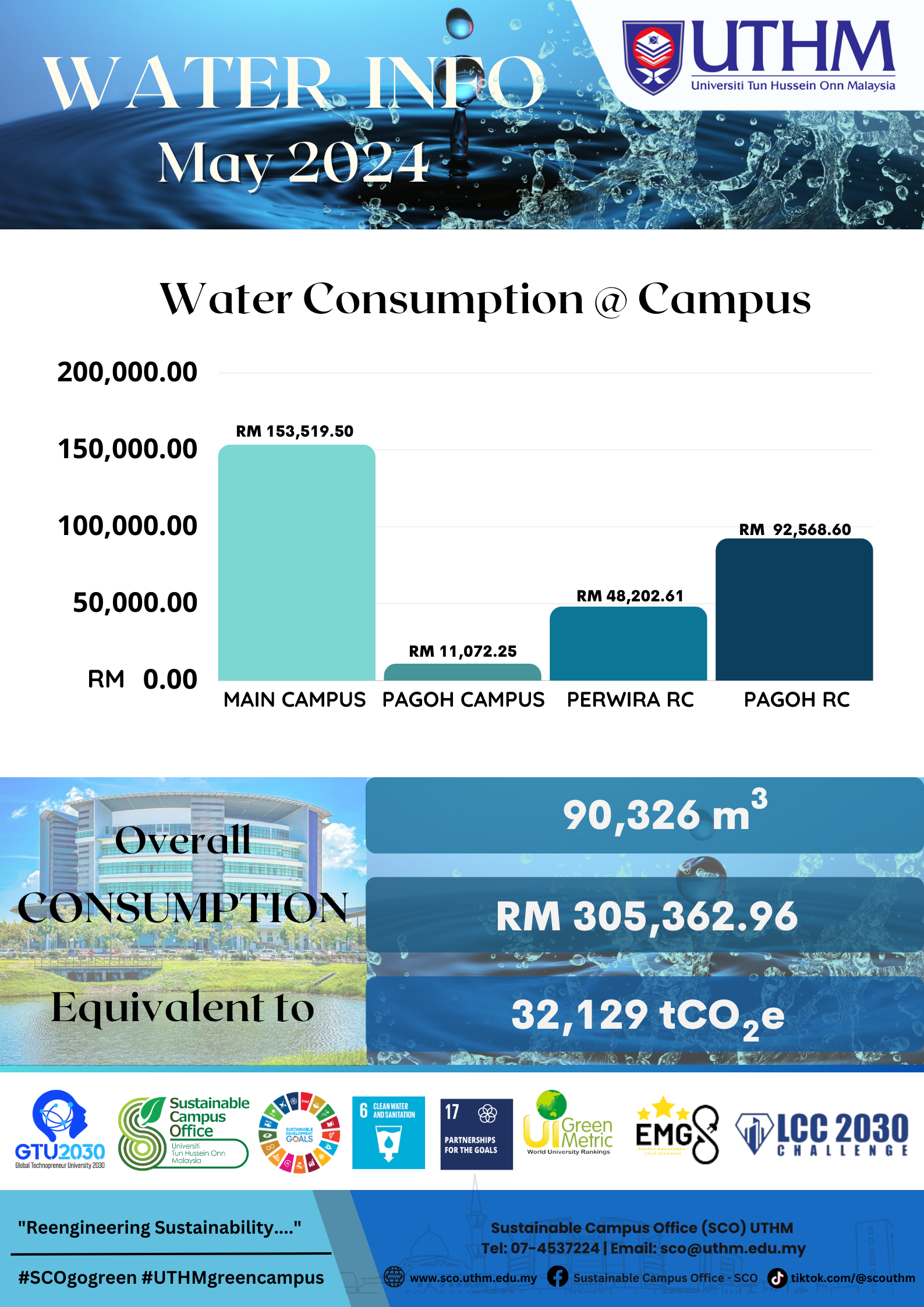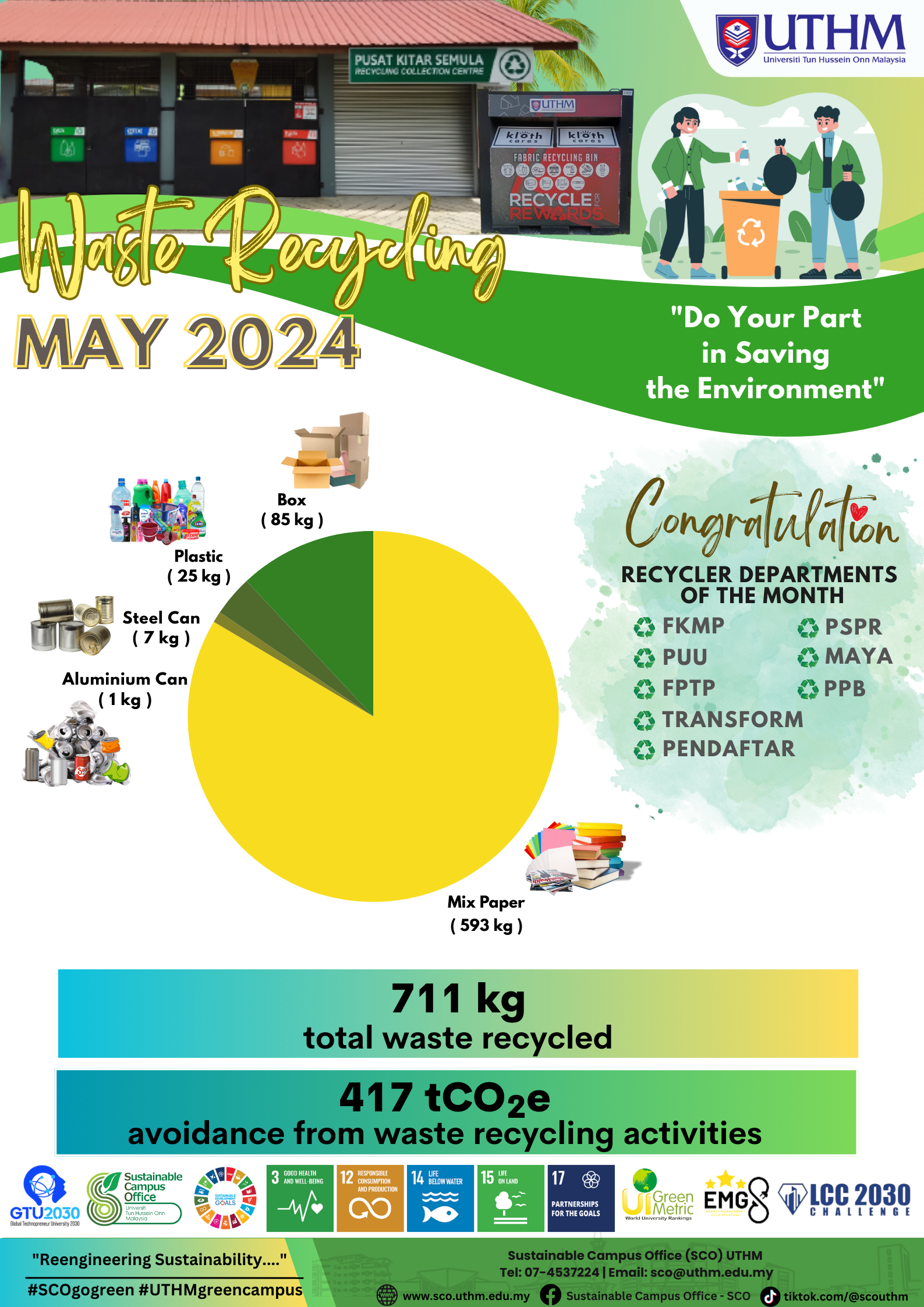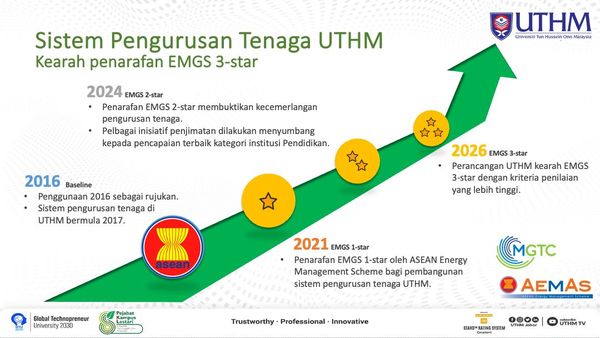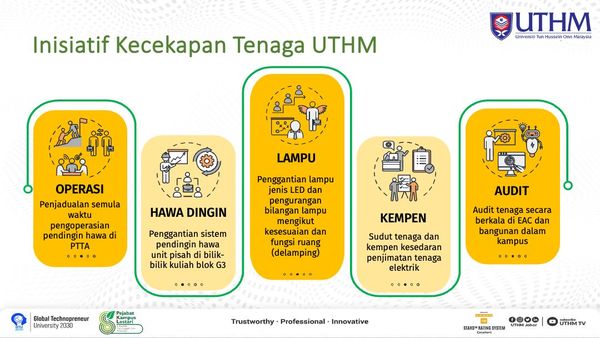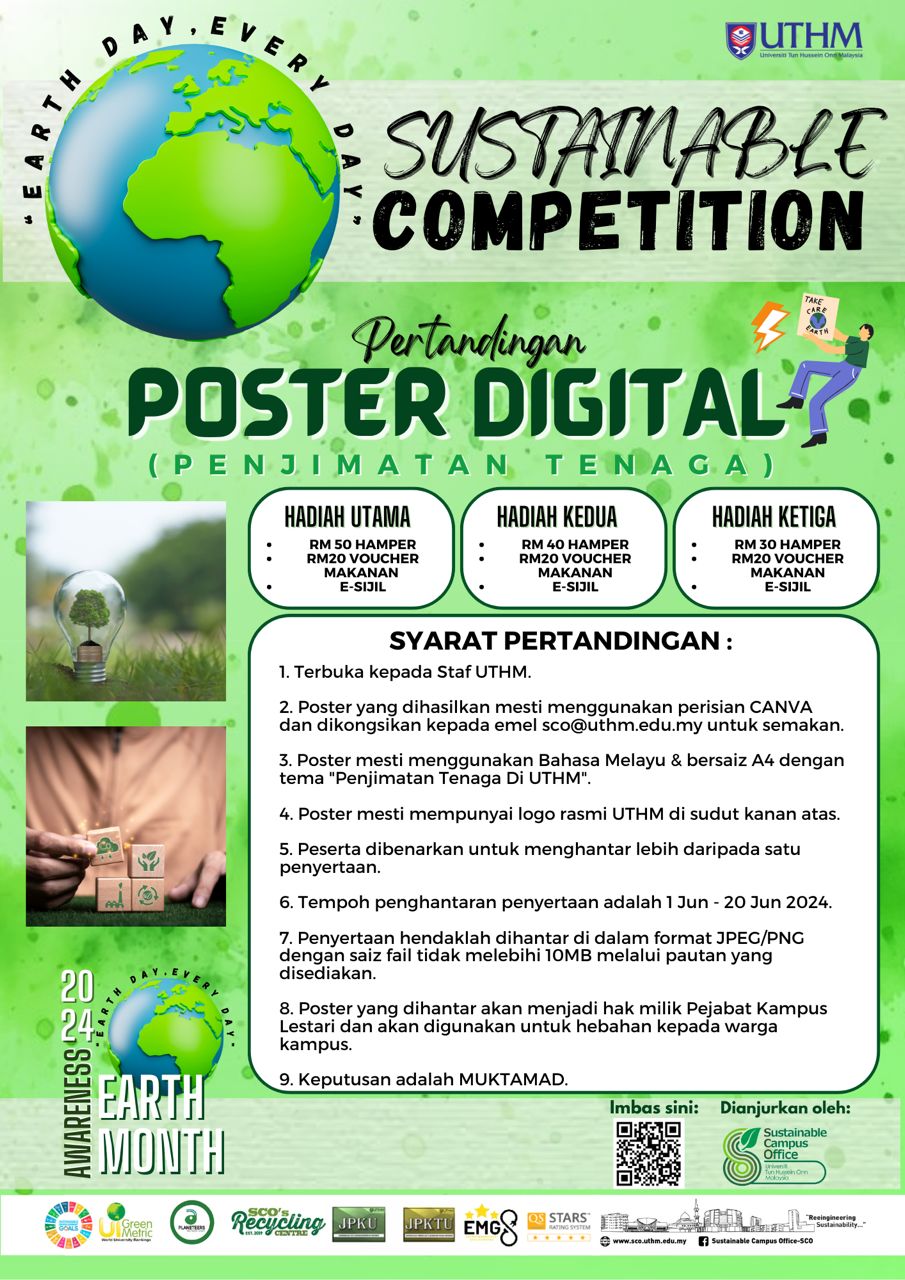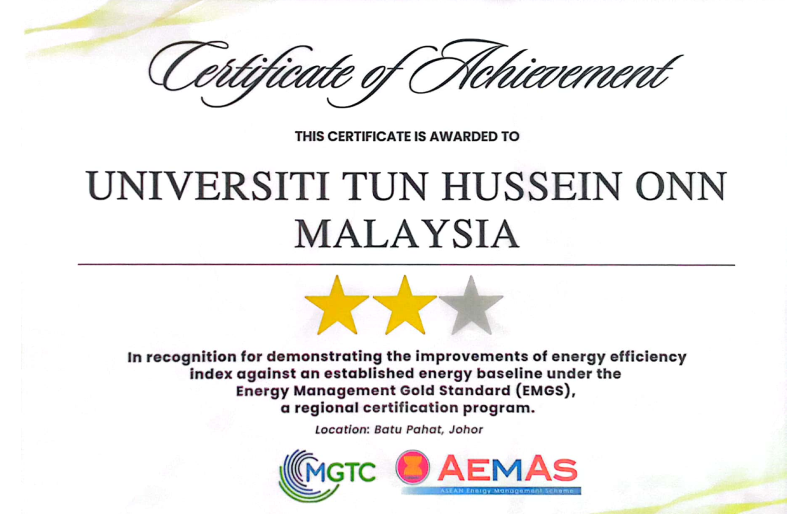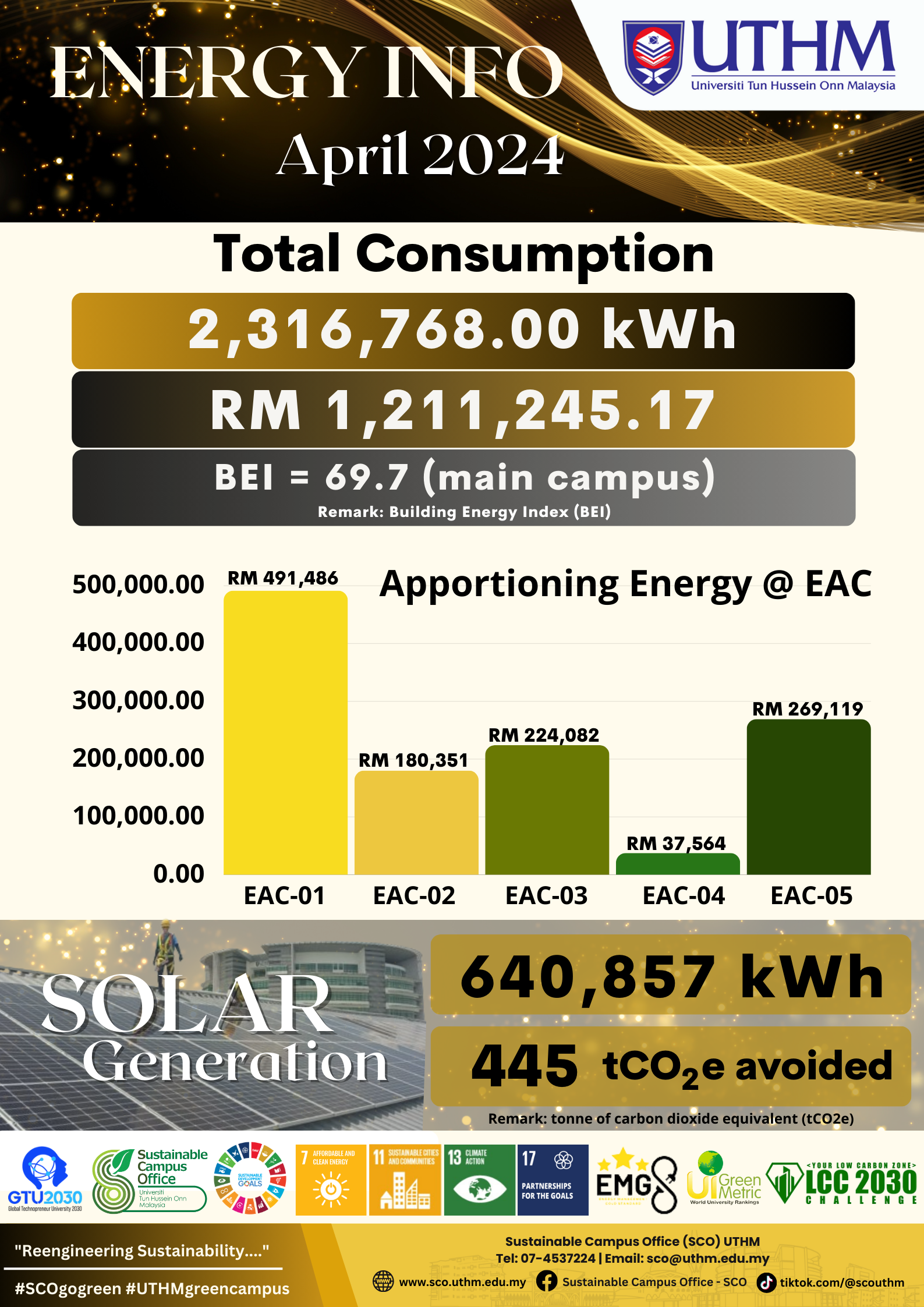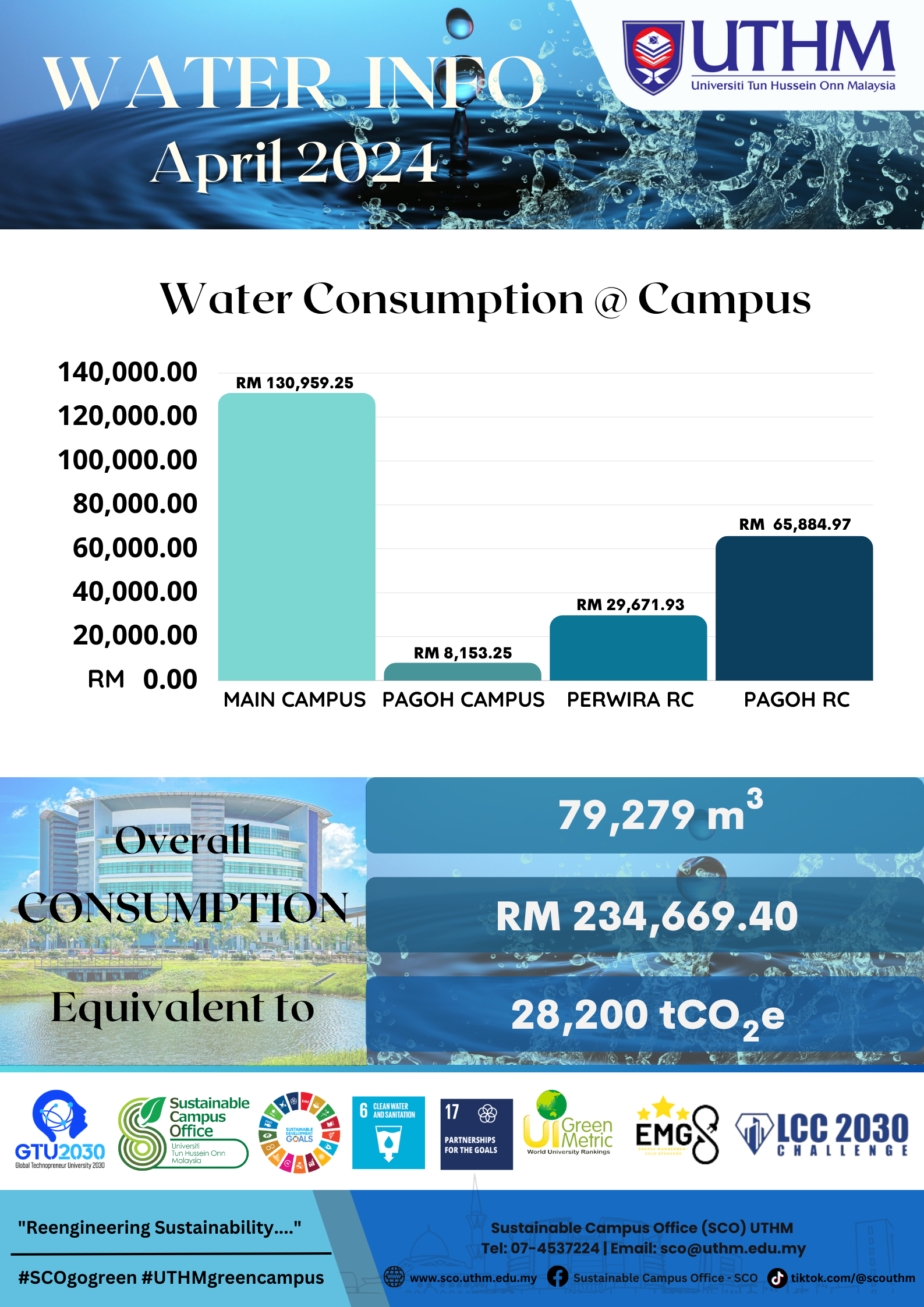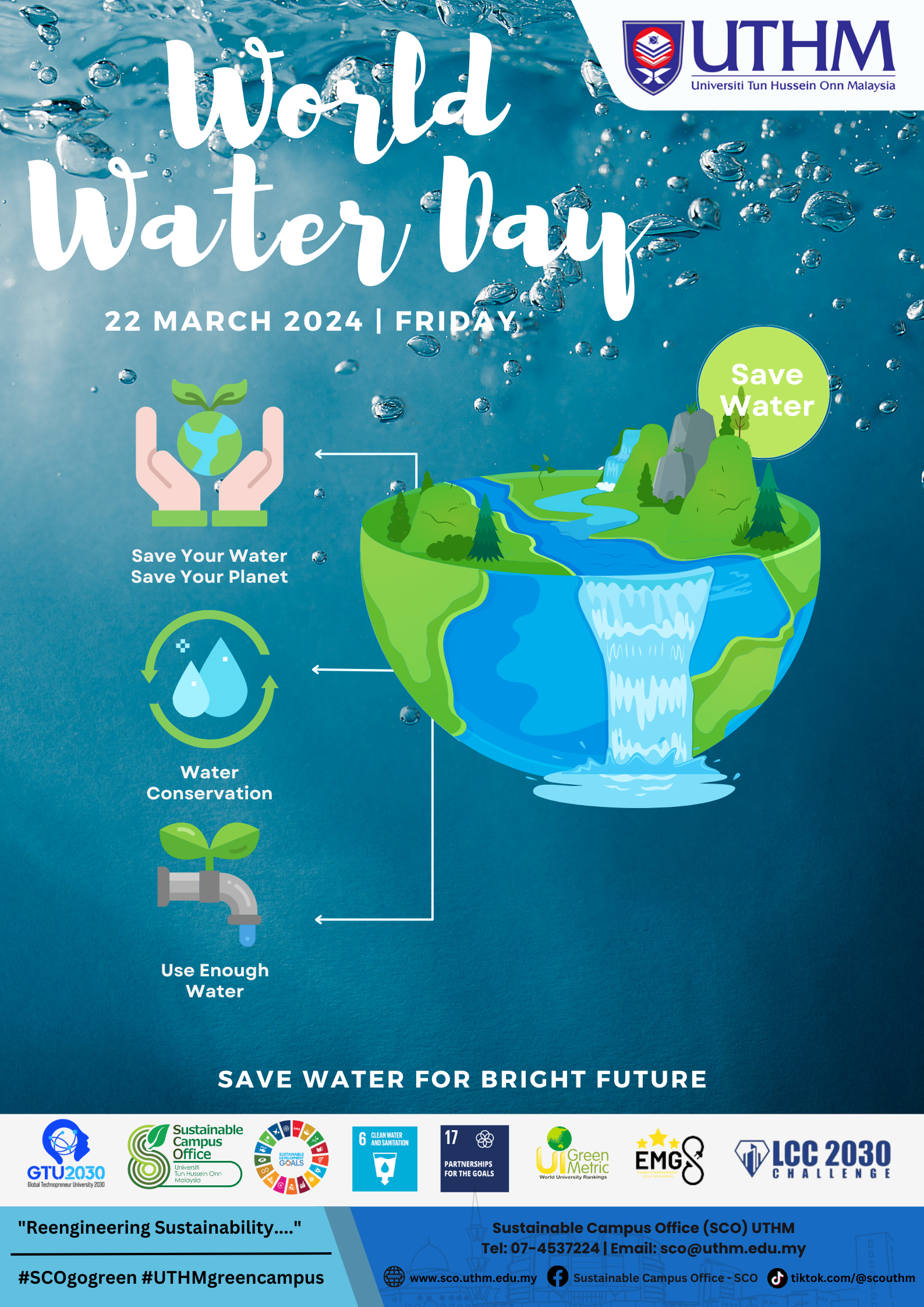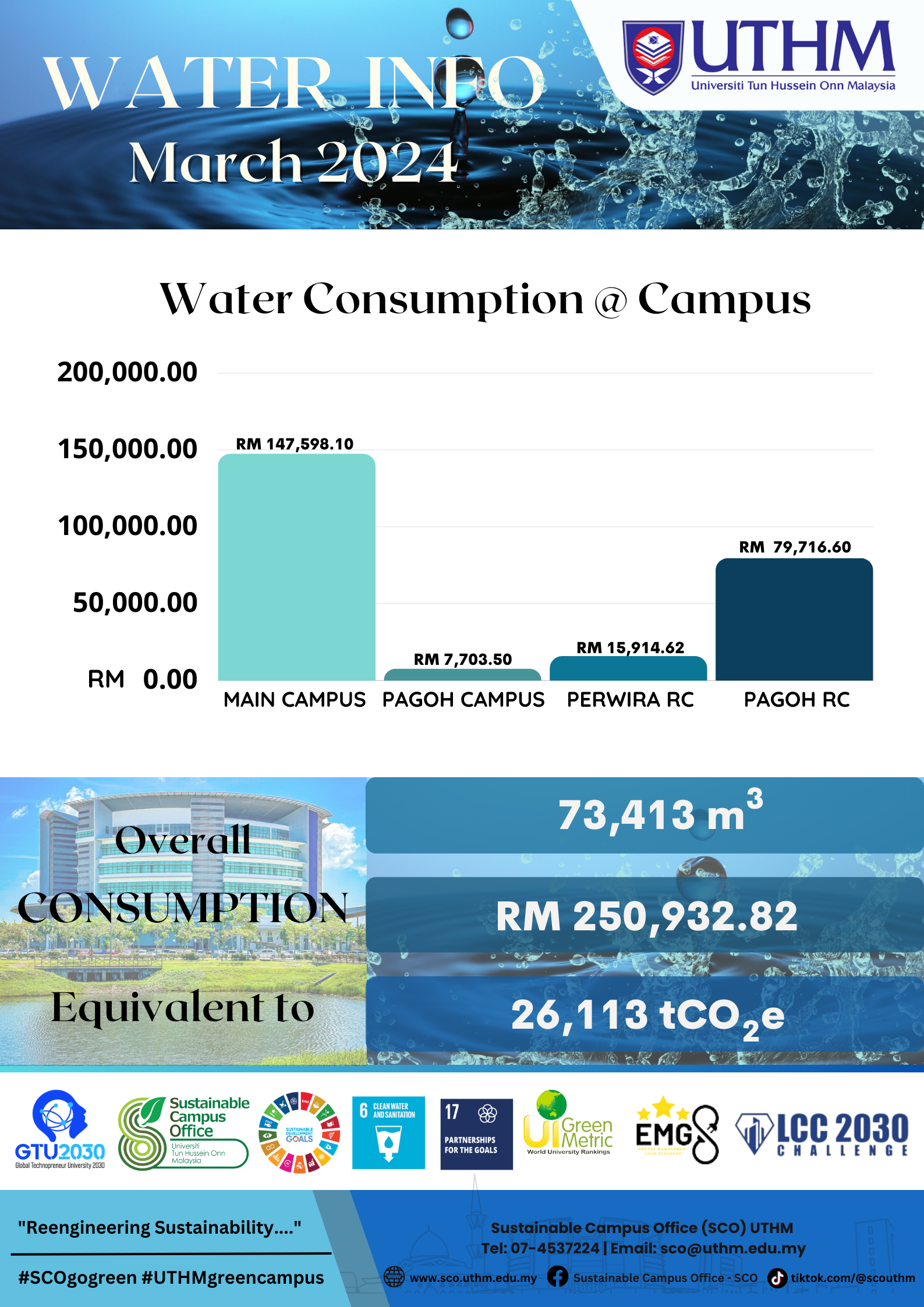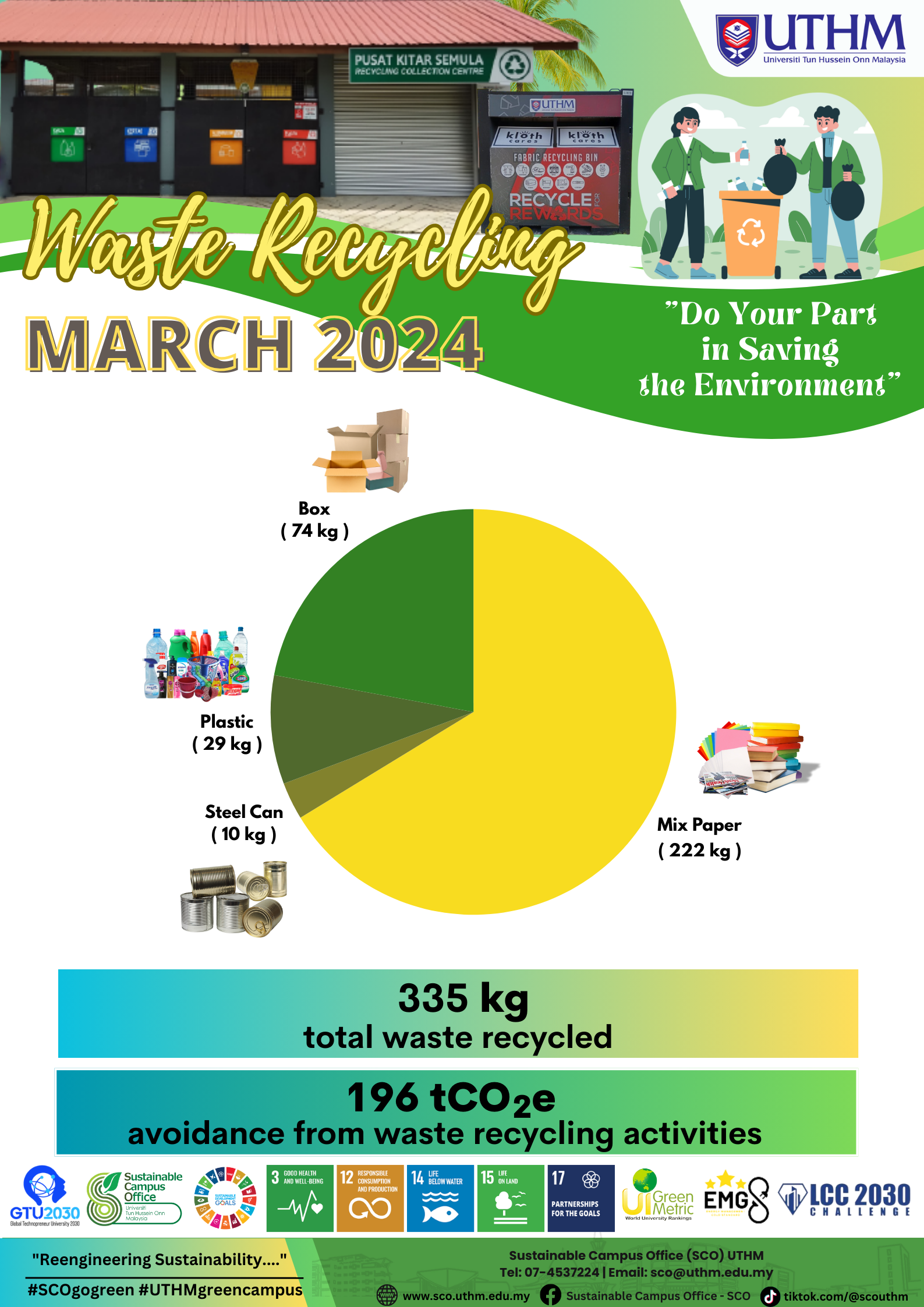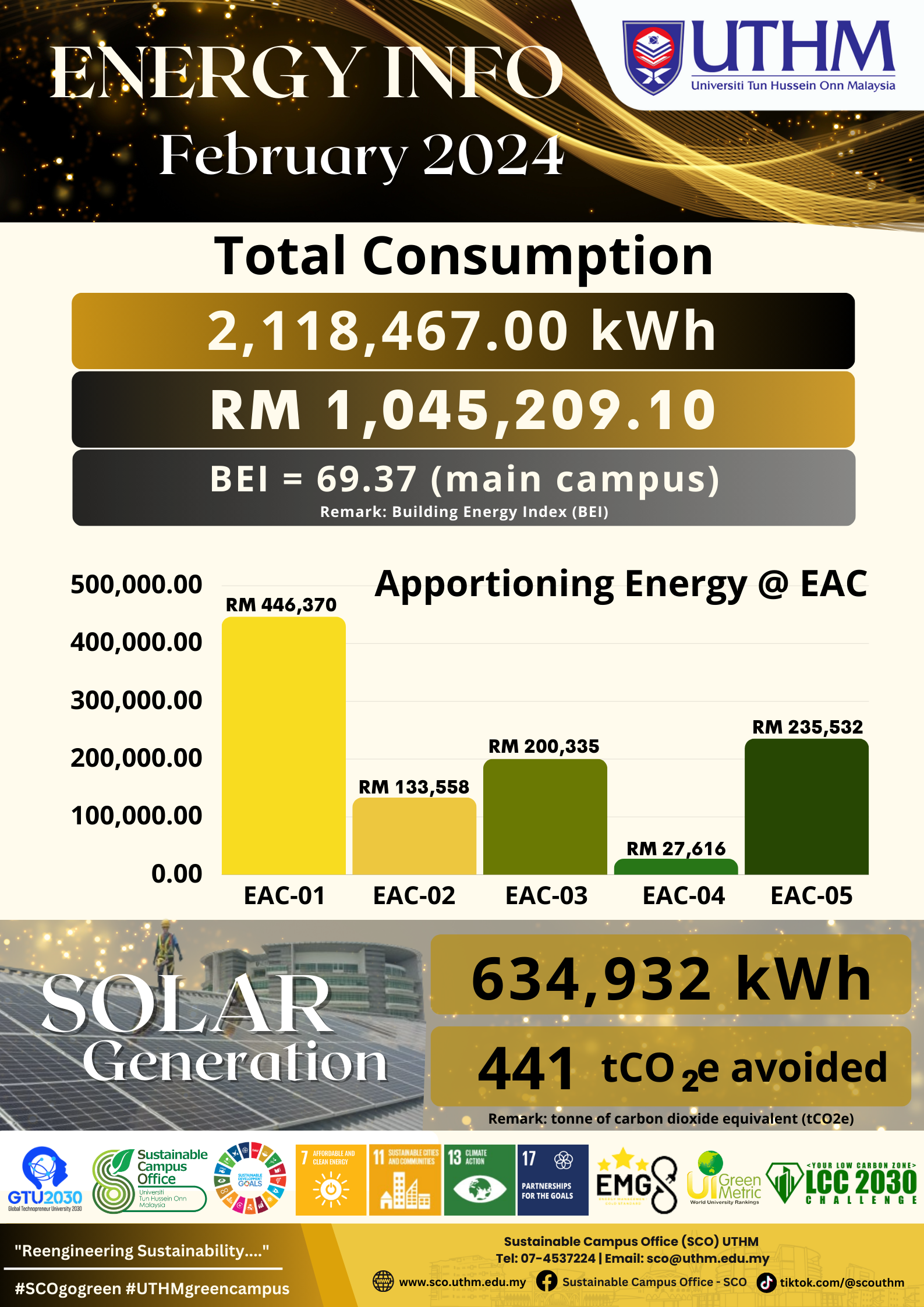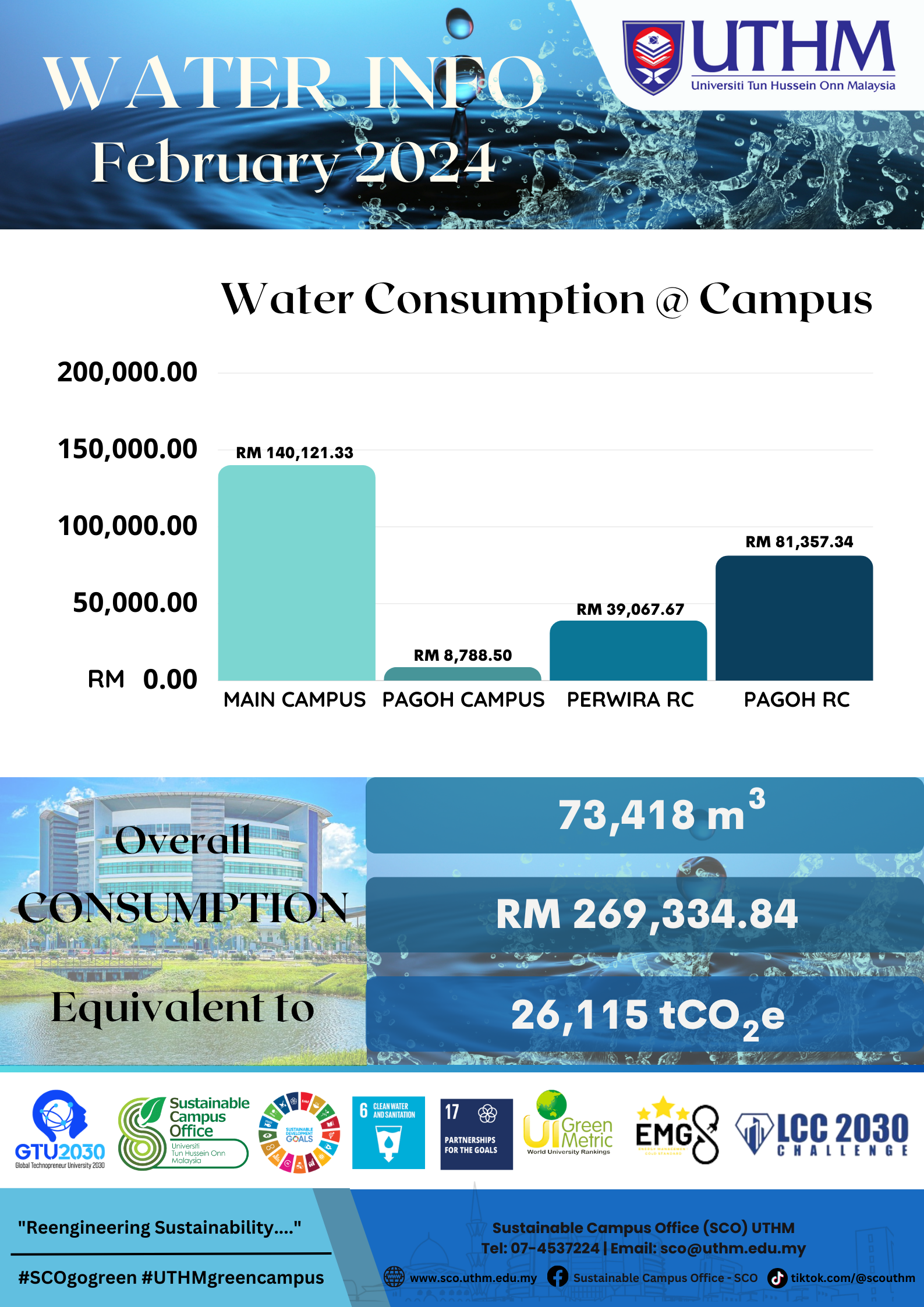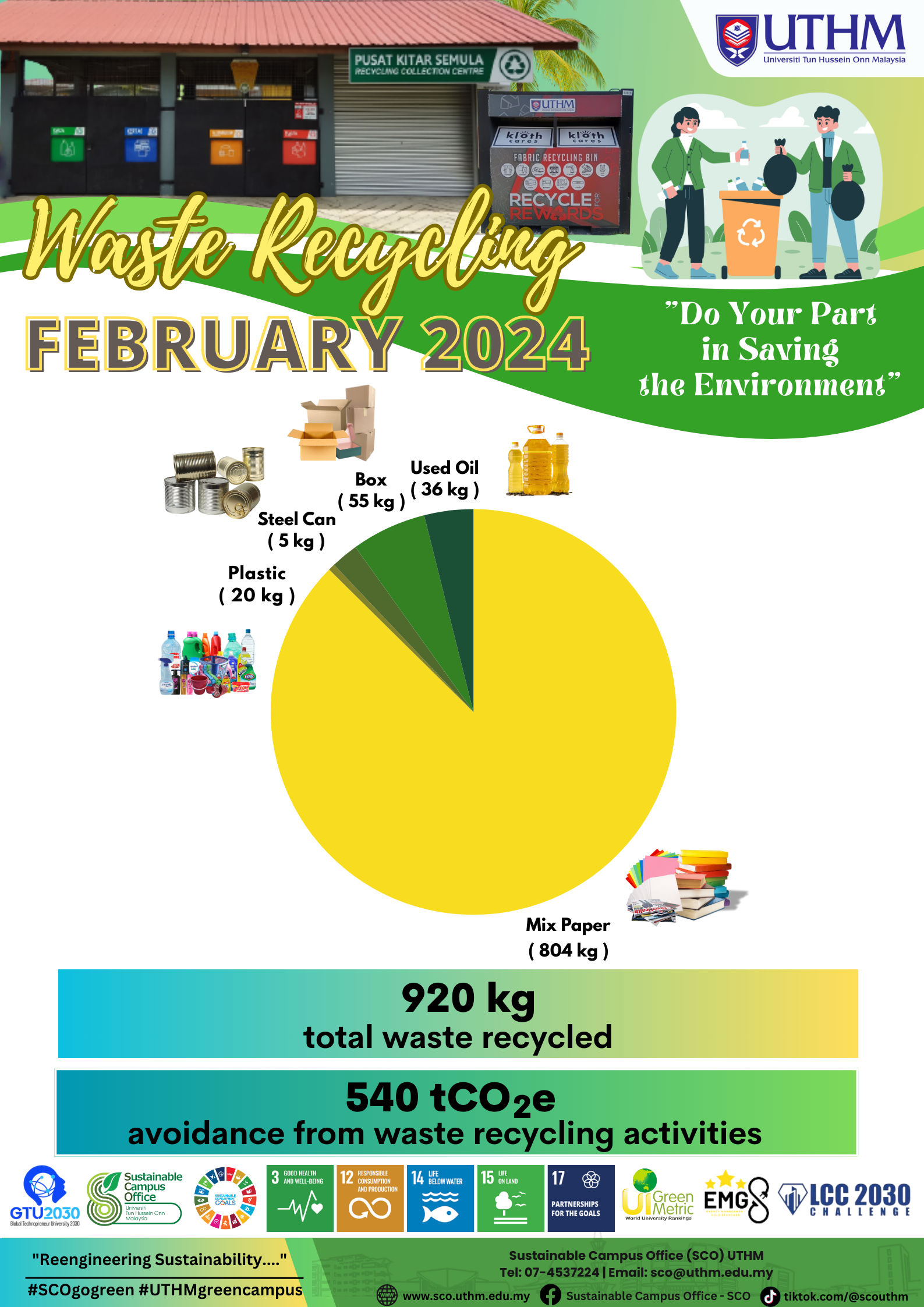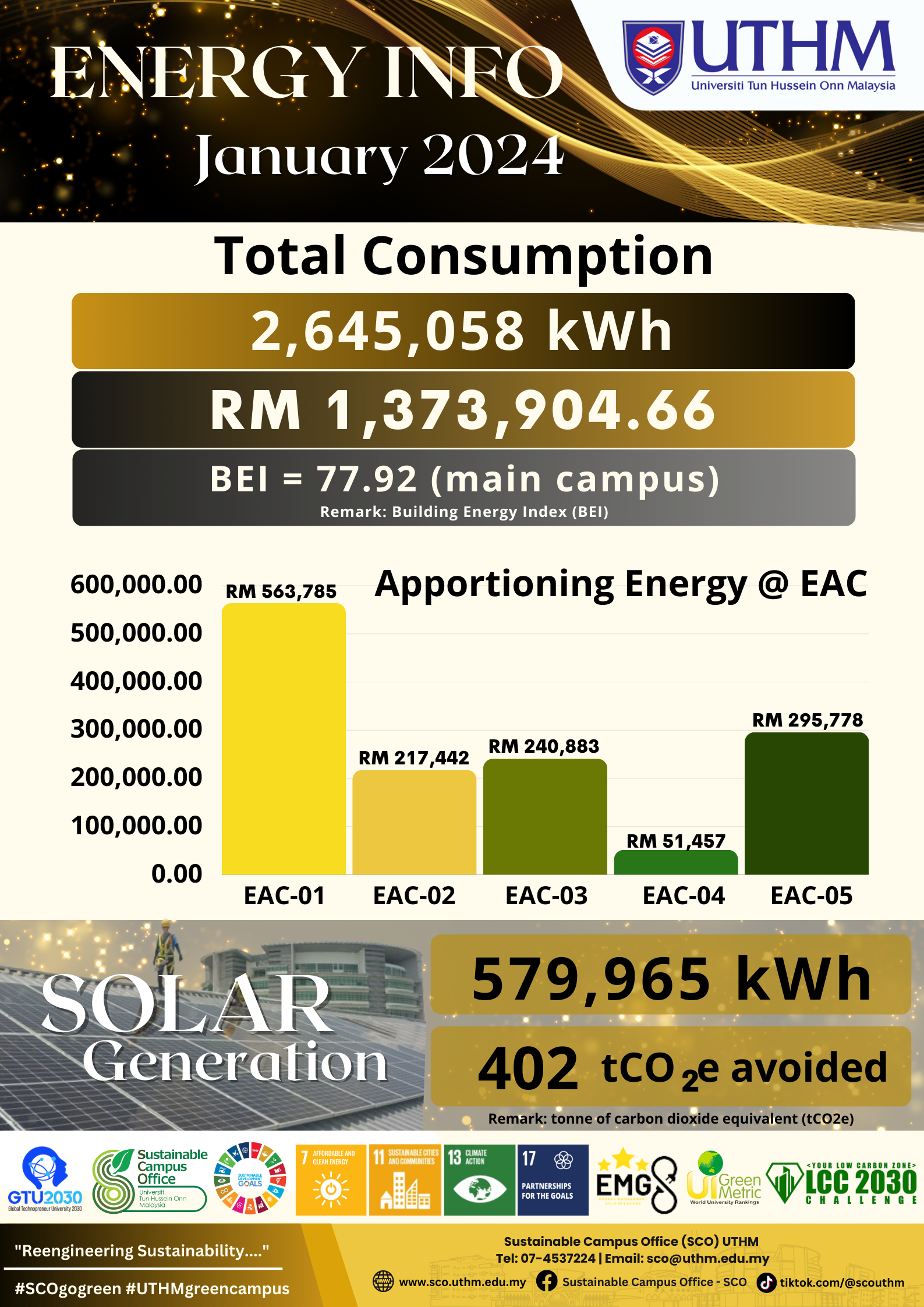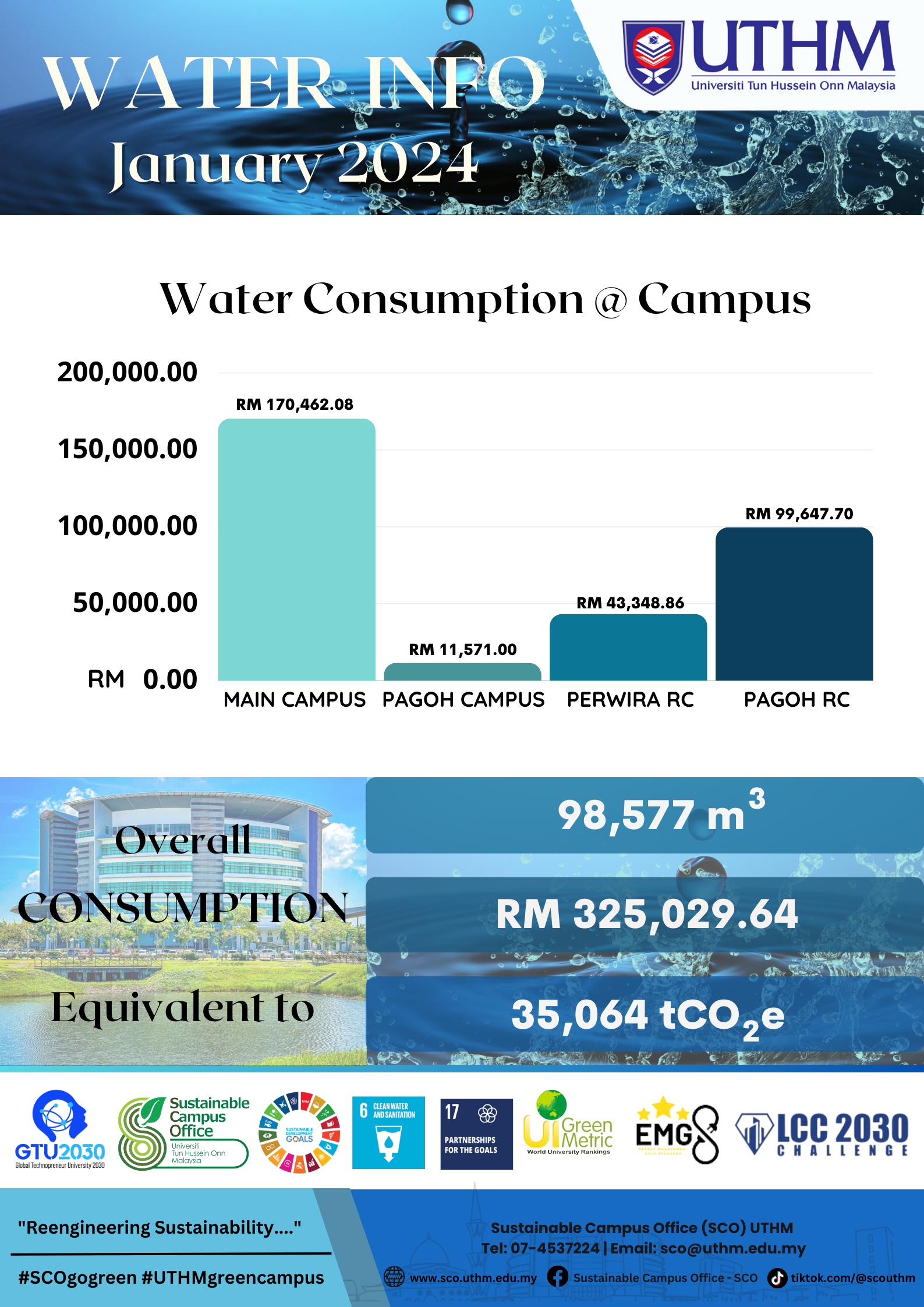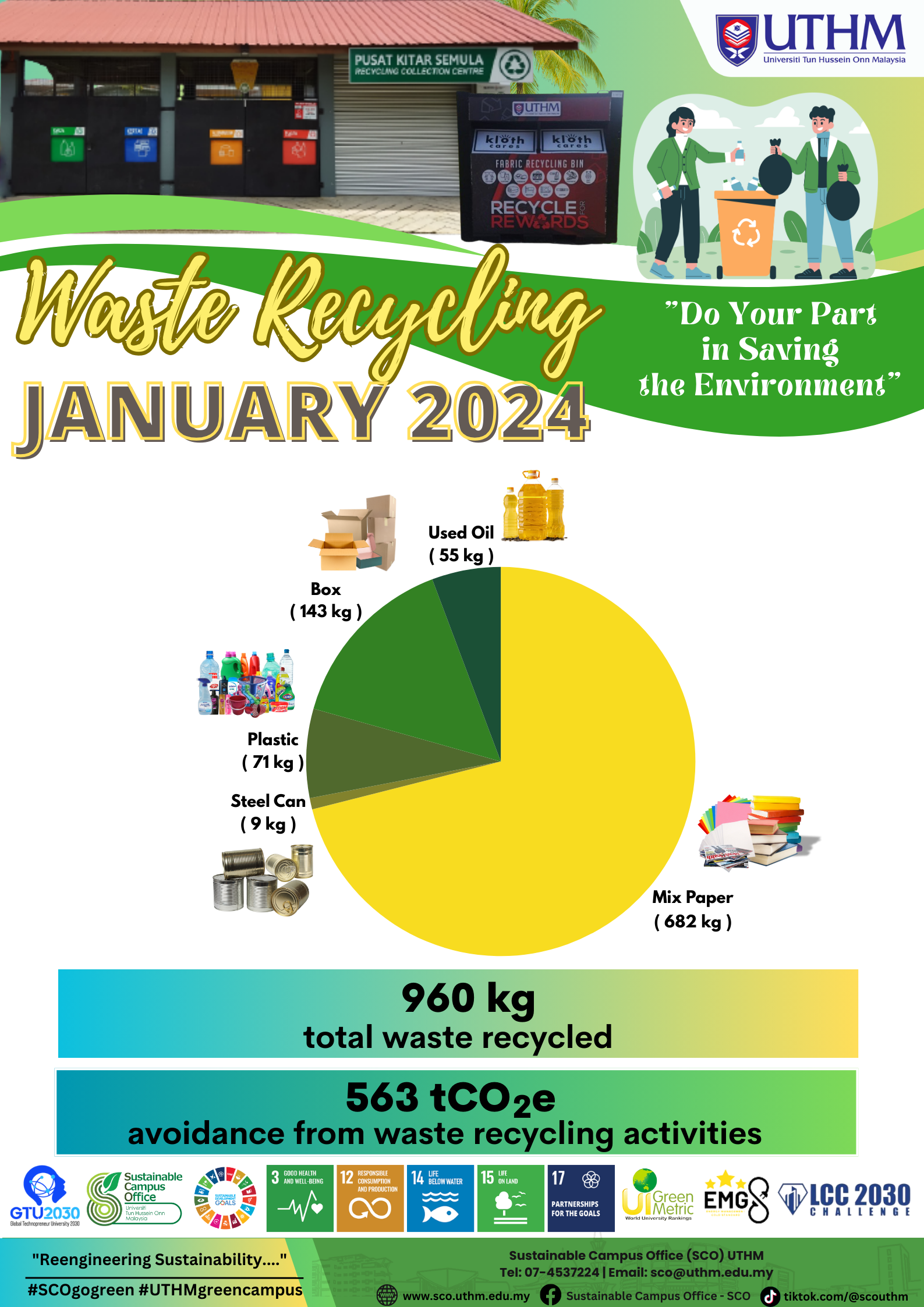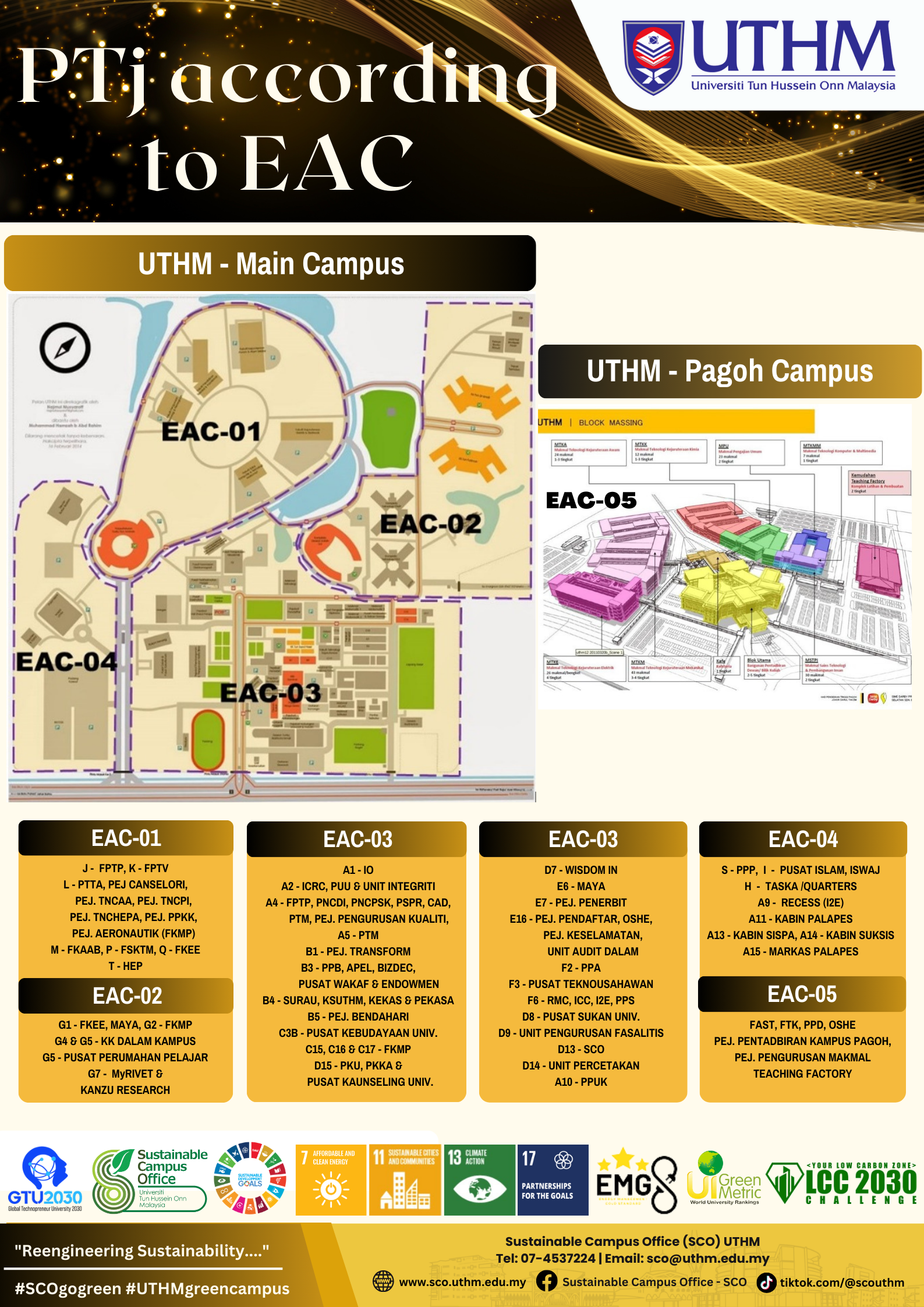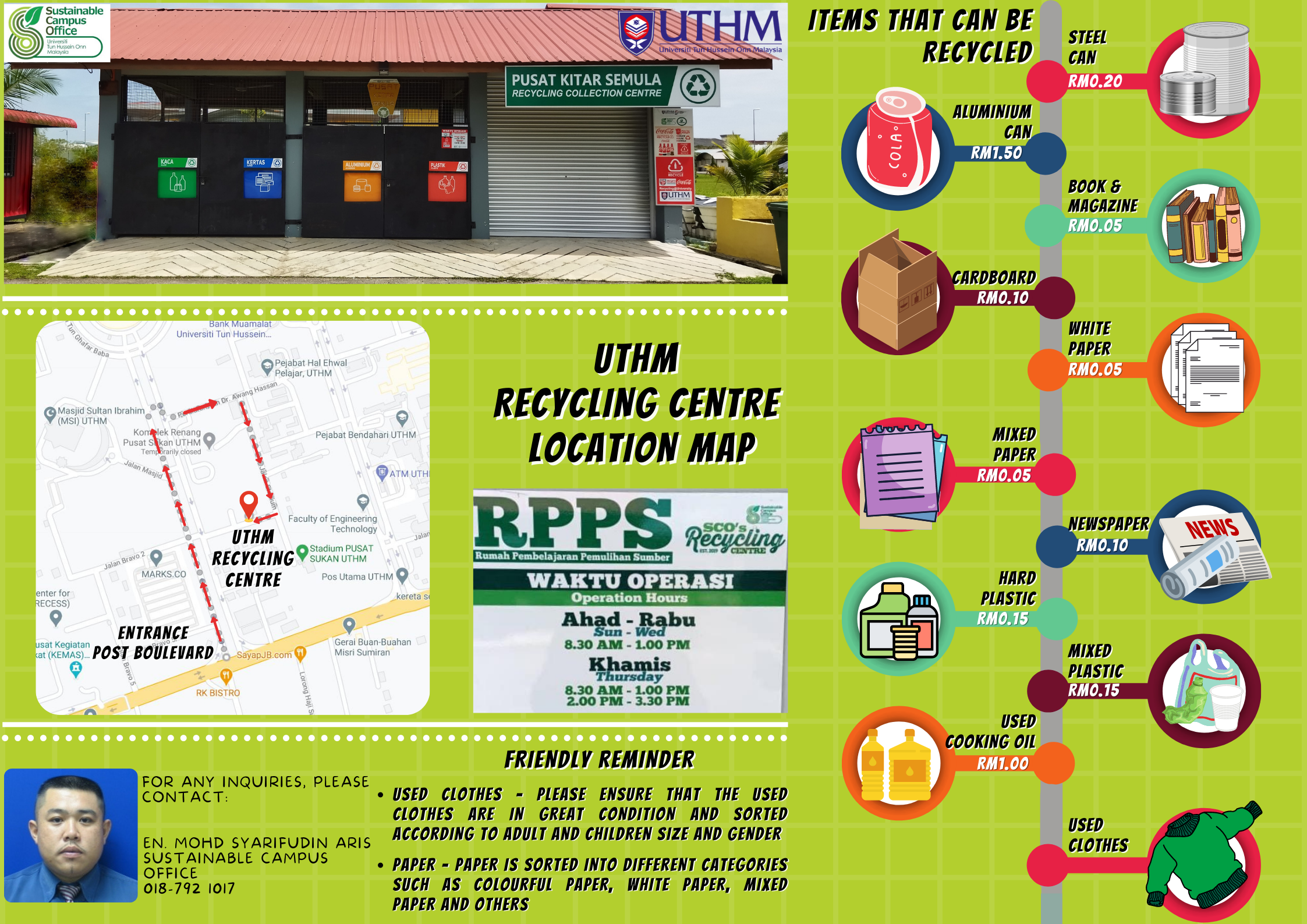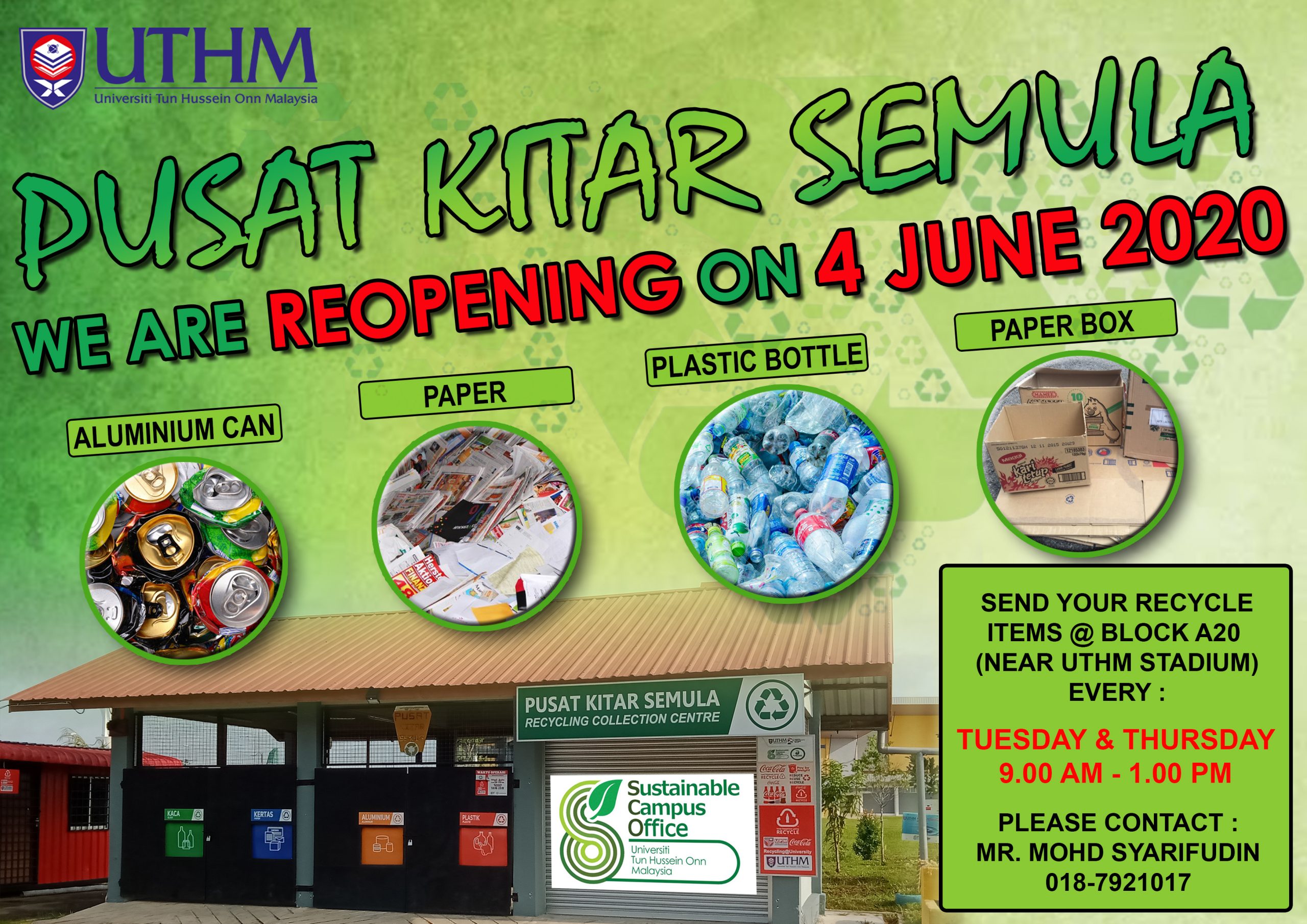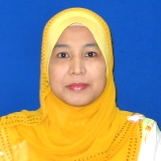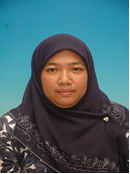SGP 6 (WATER) : Water Sustainability Project
(1) Investigation On Water Losses In Reticulation System at UTHM Campus
| Manager:
Ts. Dr. Sabariah binti Musa Progress Report 20-01-2021 Introduction: Water losses in water supply system are a very common and a serious issue which causes economic impact and liability to the environment. The aim of this project is to identify the proportion of water losses using the form of water balance. The university had been reported with high water rates and water quality problems. This investigation had been carried out around UTHM campus area and the volume of water distributed is recorded and the percentage of losses are identified. This research would examine the function of a bulk and volumetric meter that has already been installed in the water supply system. Calculation of the amount of water loss as the difference between the input volume of the system (water generated) and the billed consumption (or metered and unmet consumption) of all customers (plus exported water) is recorded for an assessment period of 7 weeks and analyzing the existing annual water consumption value and cost per month into AWWA software. This method is an efficient method to identify the percentage of losses. The findings of my study identified the percentage of losses and the value for Area 1 is 20.85 % for 7 weeks which is lower than 25% according to international standards. The result also explained the key problems that occurred in Area 2 where the water loss value is more than 25% which is 218.11% for 7 weeks but the causes of the results are not attributable to water loss but to unidentifiable water meters, damaged meters, restricted area and other defective features. Besides that, AWWA software is also another way to find the losses and evaluated the effectiveness of AWWA platform for the investigation. The software showed the percentage of loss per annual and it has obtained 5.5% in the year 2020 which is lower than 25%. It is concluded that there is no shortage of water on campus due to the low percentage of losses. This study would allow the University to solve the high water bill issues if water bills are caused by the loss of water and the method of water balance may be adjusted and added with water signal and Acoustic test. Duration: Objectives: Progress:
|
(2) Small Scale Rainwater Harvesting System Towards Green Campus
| Manager:
Ts. Sharifah Meryam Binti Shareh Musa Progress Report 26-01-2021 Introduction: A suitable rainwater harvesting system can found less polluting water resources. Rainwater harvesting allows rainwater to be collected and flow to a storage tank before it can be reused for non-potable purposes such as landscape, recreational use, and car-washing activities. This project aims to build up the small-scale rainwater harvesting at an external building for vehicles wash. It is also easier for maintenance. The rainwater harvesting system will be built at Block D9 (Figure 4.2u), a strategic location because it is located near the garage to wash official UTHM’s vehicles. Duration: Objectives: (1) To identify external building water activity in UTHM main campus.
Grant Close |
